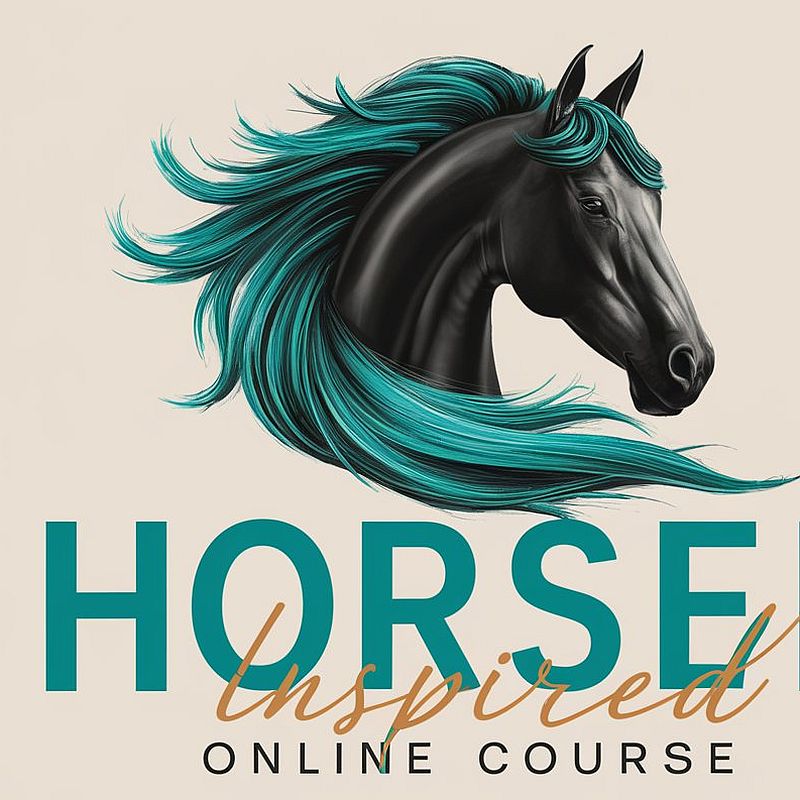Thinking of starting a new chapter in life? Maybe you feel like you’re standing on the edge of a cliff, and you are hesitating to leap into the void. What if something goes wrong? That’s what starting a new life chapter often feels like. Exhilarating. Terrifying. Full of possibilities.
I’ve been there. I’ve jumped off that cliff more times than I care to count. And you know what? I’ve face-planted spectacularly. But I’ve also soared. Again and again.
For most of us though, starting a new chapter is more like incessantly tripping over the same old hurdles, that you don’t see until you’re knee-deep in quicksand. Same mistakes. Same setbacks. Same frustrating dead ends. The good news about those missteps? They are avoidable.
The 10 most common Pitfalls you need to avoid when you start a New Chapter
Most people repeat the same mistakes during times of transition. These mistakes may not be obvious at first, but they can pile up, leading to frustration and a sense of failure.
In this article, I’ll walk you through the ten most common mistakes people make when starting a new life chapter, using real-life examples to illustrate each point. By the end, you’ll have a clearer understanding of how to navigate your next life transition with more confidence and less stress.
1. Clinging to the Past
We are creatures of habit. When you’ve been doing things a certain way for a long time, it’s hard to let go. But the more you hold onto what worked for you before, the harder it is to embrace what’s next.
Example: Claire had spent 15 years in corporate finance, but her passion had always been art. When she decided to transition to art therapy, she kept comparing her new path to her old one—salaries, job stability, and the perception of success. The more she clung to those comparisons, the less she felt able to fully commit to her new direction. It wasn’t until she let go of the old metrics of success that she began to thrive as an art therapist.
Takeaway: You can’t start the next chapter if you keep re-reading the last one. Time to turn the page and move on. Holding on to past experiences can keep you stuck in a cycle of comparisons.
2. Underestimating the Emotional Impact
Change is more than just a shift in your external circumstances. It stirs up your internal world too. Many people think they can brush off the emotional impact of starting again—especially when the change is something they’ve chosen. But even positive change can lead to feelings of loss, anxiety, or even grief.
A study in the International Journal of Stress Management revealed that 70% of people undergoing major life transitions experience symptoms of anxiety or depression.
Example: Kevin had always dreamed of living abroad. When the opportunity came to move to Spain for a new job, he was thrilled—until the reality of homesickness set in. He hadn’t anticipated how much he’d miss his old life, his friends, and even the little things like his favourite coffee shop back home. The emotional burden made it hard for him to fully engage in his new job.
Takeaway: Acknowledge the emotional upheaval that comes with a life transition. It’s not a sign of weakness to feel out of sorts—it’s part of the process. Give yourself time to adjust emotionally, just as you would adjust to any new routine.
3. Going It Alone
When you start a new chapter, it’s easy to feel like you’re on an island. You may think it’s up to you to figure everything out by yourself, or you might be hesitant to burden others with your problems. But this is the exact moment when you need support the most.
According to a survey by the American Psychological Association, 86% of people who sought support during major life changes reported feeling better equipped to handle challenges.
Example: Mieke, after her divorce, was determined to “do it all” herself. She thought leaning on friends or family would make her seem weak or incapable. But after months of struggling on her own, she realised that reaching out for help wasn’t a sign of failure—it was a sign of strength. Once she started building a support network, her healing accelerated, and she felt more empowered.
Takeaway: No one succeeds alone. Building a strong support system—whether through friends, family, or professional networks—can make all the difference when starting a new chapter.
4. Failing to Plan
It’s easy to get caught up in the excitement of a new beginning and forget about the practicalities. You might think, “I’ll figure it out as I go,” but without a clear plan, that initial excitement can quickly turn into overwhelm.
Example: Tom had always dreamed of starting his own business, so when he left his 9-to-5 job, he jumped in headfirst. But without a business plan, his enthusiasm soon waned. He had no roadmap for how to get clients, manage his time, or handle finances. His business floundered until he finally sat down and created a solid plan.
Takeaway: Dreams can be intoxicating, but they need to be built on a solid foundation. Make a plan for your new chapter that includes actionable steps, timelines, and measurable goals.
5. Ignoring Your Values
When you’re in the midst of a life change, it’s easy to get caught up in what you think you “should” do rather than what truly aligns with your values. But ignoring your core values can lead to discontentment down the road.
Example: Sarah moved to New York City because she thought it was the best place to advance her marketing career. She didn’t stop to think about what mattered most to her—work-life balance, family time, and living close to nature. The city quickly drained her energy, and she soon discovered that her new life wasn’t aligned with her values.
Takeaway: Before jumping into a new chapter, review your values. Make sure your decisions reflect what’s most important to you, or you may find yourself unhappy even in the midst of success.
6. Overloading on Advice
Everyone loves to give advice when you’re in transition. While seeking advice can be helpful, too much of it can cloud your judgment and leave you feeling paralysed.
Example: Jack had an idea for a business, and he spent months seeking input from friends, colleagues, and mentors. Everyone had a different opinion, and soon Jack found himself overwhelmed by conflicting advice. In trying to please everyone, he lost sight of what he wanted.
Takeaway: Be selective about whose advice you take. Filter out the noise and trust your own instincts. You know yourself and your goals better than anyone else.
7. Expecting Instant Results
We live in a world that values quick wins and instant gratification. But starting a new life chapter is a long game. Expecting immediate success will only lead to frustration.
Example: Emily was eager to reinvent herself as a health coach after quitting her job. She expected to have clients lined up within weeks, but months went by with little traction. Frustrated, she nearly gave up. It wasn’t until she adjusted her expectations and started focusing on long-term growth that her business began to take off.
Takeaway: Be patient. Major life transitions take time to bear fruit. Focus on consistent, small steps, and trust that the results will come in time.
8. Resisting Flexibility
No matter how much planning you do, life is unpredictable. Being too rigid in your approach can lead to disappointment when things don’t go as expected.
Example: Paul had a clear vision for his freelance writing career. He specialised in one niche, but after a year, the demand still wasn’t there. Instead of throwing in the towel, he pivoted to a different niche, which allowed him to find more success.
Takeaway: Be open to adjusting your course. Flexibility is crucial during times of change. Sometimes the path you didn’t plan for ends up being the best one.
9. Neglecting Self-Care
In the rush to achieve new goals, self-care often gets pushed to the back burner. But neglecting your well-being can lead to burnout, which will derail your progress faster than anything else.
Example: Alice transitioned from a high-stress corporate job to running a non-profit organisation. She poured all her energy into the new venture, working around the clock. Within six months, she was exhausted and on the brink of burnout. Only when she started prioritising her self-care did she find balance and sustainable success.
Takeaway: Self-care isn’t optional. Whether it’s physical health, emotional well-being, or mental clarity, taking care of yourself is the foundation of a successful transition.
10. Not Defining Your Purpose
Without a clear sense of purpose, your new chapter can feel aimless. Purpose provides direction, motivation, and resilience when the going gets tough. Research published in Psychological Science shows that individuals with a sense of purpose are 15% more likely to be alive 14 years later, highlighting the long-term benefits of having a clear purpose.
Example: Mark switched jobs multiple times, trying to find something that made him happy. But without a clear purpose, each new role left him feeling unfulfilled. Once he took the time to define his purpose—helping others through mentorship—he found joy in his work and felt more aligned with his career.
Takeaway: Your purpose is your compass. If you haven’t taken the time to define your “why,” you’re more likely to drift off course during a transition.
Don’t Let These Mistakes Hold You Back
Life transitions are hard enough without stumbling over these common mistakes. If you’re ready to start your next chapter with more clarity, confidence, and resilience, you don’t have to do it alone.
That’s where my course, “Rearing to Get Going in a New Direction – Guided by Horses,” comes in. This course is designed to help you avoid these common pitfalls by providing a clear roadmap for your life transformation. You’ll gain the tools to clarify your purpose, align your decisions with your values, and build a solid plan that’s flexible enough to adjust as needed.

Ready to make your next chapter your best yet? Click here to find out more.

In addition to the Camino de Santiago retreats that I host at my little French farm southwest of Bordeaux, I have also created 7 online courses, ex. The Purpose Protocols, The Roadmap to Resilience – from Burnout to Brilliance Protocol and The Change Careers without Starting from Scratch – each course is available with or without one-to-one support. To stay in contact, I invite you to subscribe to my newsletter, you’ll get immediate access to my free life crisis quiz.
References
- I can, I do, I am: The narrative differentiation of self-efficacy and other self-evaluations while adapting to bereavement. Journal of Research in Personality, 35(4), 424-448. American Psychological Association. (2019).
- Goal striving, need satisfaction, and longitudinal well-being: The self-concordance model. Journal of Personality and Social Psychology, 76(3), 482-497. Rader, C. A., Larrick, R. P., & Soll, J. B. (2017).
- Advice as a form of social influence: Informational motives and the consequences for accuracy. Social and Personality Psychology Compass, 11(8), e12329. Lally, P., Van Jaarsveld, C. H., Potts, H. W., & Wardle, J. (2010).
- How are habits formed: Modelling habit formation in the real world. European Journal of Social Psychology, 40(6), 998-1009. Pulakos, E. D., Arad, S., Donovan, M. A., & Plamondon, K. E. (2000).
- A pilot study and randomized controlled trial of the mindful self‐compassion program. Journal of Clinical Psychology, 69(1), 28-44. Hill, P. L., & Turiano, N. A. (2014).
- Purpose in life as a predictor of mortality across adulthood. Psychological Science, 25(7), 1482-1486.

